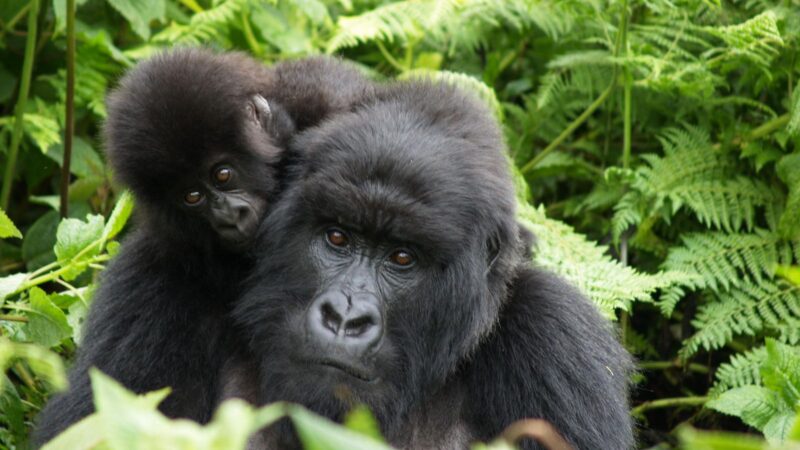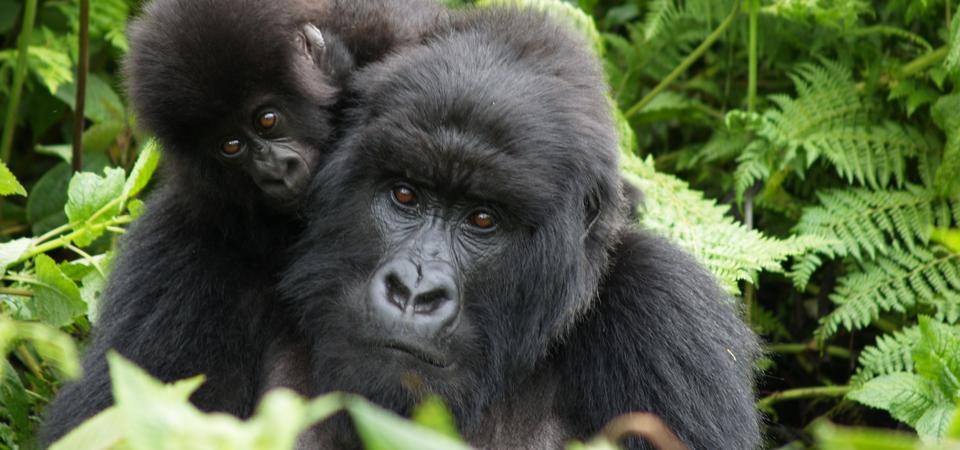New research reveals that while close bonds protect female gorillas from illness, they may actually weaken the health of males, challenging the idea that more socializing is always better.
getty
If you asked a zoologist a decade ago about the benefits of gorilla friendships, the answer would have seemed fairly straightforward: stronger bonds, better health, longer lives. After all, across primates, social ties have consistently been linked to reduced stress and greater survival.
However, friendship doesn’t always lead to better health for all gorillas. In fact, for males, it can make things worse.
A recent study of Rwandan mountain gorillas, published in the Proceedings of the National Academy of Sciences, overturned this established presumption. It reveals that although female gorillas with stable, tight-knit social relationships are less likely to become ill, males with the same strong social bonds are more likely to become ill.
Why The Difference?
On the surface, it might make sense to think that males are just being exposed to more germs. But the researchers disagree. What they think is responsible is not disease transmission; it’s the expense of their defense.
Male gorillas with close social ties invest heavily in protecting females and offspring. That protection is costly in two ways:
- Energy drain: Defending group members requires vigilance, strength and constant readiness to fight.
- Stress and immunity: The chronic stress of guarding the group may suppress immune function, leaving males more vulnerable to illness.
In an interview with ScienceDaily, lead researcher Dr. Robin Morrison affirms, “It’s possible that males expend more energy by having close social ties, as they have to defend females and offspring, and the stress of this may reduce their immune function.”
The study suggests that there isn’t a universal “best” way to be social. For females, friendships are medicine. For males, they can be a burden. The “right” strategy depends on sex, age, offspring and group context.
Lives That Prove The Point
Because this research is grounded in decades of long-term observation, we can see how these dynamics play out in the real lives of Gorillas in recorded history:
- Gutangara, an adult female, balanced many social bonds while prioritizing her young, ultimately raising eight surviving offspring, making her the most successful mother on record.
- Maggie, a high-ranking female, was both aggressive and nurturing. After her dominant male died, she led her group, but later struggled to reintegrate, eventually vanishing alone into Congo.
- Titus, a silverback who survived poaching as a youngster, ruled for 20 years with an unusually gentle style, maintaining rare physical closeness with females that boosted his reproductive success.
- Cantsbee, authoritative but peaceable, reigned for 22 years. This was the longest dominance tenure ever seen. He fathered at least 28 offspring, and when illness struck, chose solitude in his final months.
Each story illustrates how the balance of bonds, responsibilities and health outcomes plays out differently depending on sex and circumstance.
Lessons Beyond Gorillas
These findings ripple outward. They remind us that sociality in mammals, including humans, is shaped by context. What strengthens one individual may weaken another. There is no single blueprint for the “right” number of friends, allies or companions.
In the same ScienceDaily interview, Dr. Tara Stoinski, co-author of the study, offers another takeaway: the power of long-term fieldwork. “This paper highlights the incredible value of long-term studies to furthering our understanding of the evolution of sociality and how the benefits or costs of sociality can vary considerably across different environments.”
The lesson is clear. Friendship isn’t a universal good. It’s a strategy; a tool that can heal or harm, depending on who wields it, and when. For gorillas, the question isn’t whether to be social, but how much, with whom and at what cost.
Does thinking about animal friendships remind you of how we’re all connected in the natural world? Take this science-backed test to find out how strong your connection might be: Connectedness to Nature Scale









